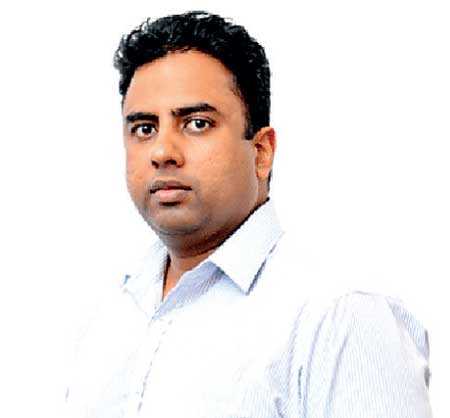Saturday Feb 21, 2026
Saturday Feb 21, 2026
Friday, 20 April 2018 00:00 - - {{hitsCtrl.values.hits}}
 By Rasika Karunatilake
By Rasika Karunatilake
Customer experience (CX) is fast emerging as a key competitive advantage in today’s marketplace. In fact, according to Forbes’ Blake Morgan, 75% of companies set improving CX as an objective for 2018.
This is due largely to the way that technology can augment the relationship between businesses and customers, and the way that tech companies have disrupted industries by providing a superior customer experience. Industry leaders are now taking note and looking at how they can harness technology to create a more powerful customer experience. Sysco, the world’s largest foodservice company, is one of those leaders and together with Sysco LABS, they are reimagining the foodservice customer experience.
Customer experience is the product of the interactions between the customer and the organisation over the duration of their relationship. Traditionally, CX was relegated to interactions that happened in stores and with salespeople or products, but the explosion of the online marketplace has changed the expectations of customers. Along with being able to make purchases online, customers also expect organisations to behave more like their friends. For example, today an organisation with a Facebook page will be expected to chat with customers through the messenger app, and most leading organisations will be expected to have mobile applications of their own to provide greater transparency and communication.
Today’s CX improvements are numerous and diverse. Customers expect greater transparency on the supply chain and workflow of organisations – consider how it isn’t enough to know that your Uber is arriving, you need to know exactly how many minutes away it is and see its location on a map. This practice is being adopted by more and more industries; from food delivery services to airlines, organisations are trying to communicate with customers in real time.
The customer service cloud is another emerging tool; using the massive amounts of data transactions produced, companies are able to not only save customers’ time and effort, but also offer them fairer prices. In industries such as food supply, where the price of the commodity is prone to fluctuation based on supply and demand, cloud pricing allows organisations to use algorithms to assign the best price possible.
Another major area of innovation in CX is smart stores. The implementation of augmented reality in stores is increasing dramatically; driven by advancements in the technology and in the internet of things, clothes retailers like Rebecca Minkoff’s are using smart mirrors to help customers virtually try on clothes, see if the item is available in other sizes, colours and much more. Amazon too is breaking into this space following their acquisition of whole foods. With Amazon Go they are creating grocery stores without checkout counters where customers are automatically charged for whatever they walk out with.
Sysco LABS is working on achieving this level of CX innovation in the foodservice industry. With a focus on Sysco’s entire foodservice chain, ‘from farm to fork’, Sysco LABS is reimagining every relationship with technology; the farmer and the food storage team, the relationship between the food delivery team and the restaurant operator, and the one between restaurants and customers. The innovations of the teams will ultimately allow restaurants to run smoother and grow by providing their customers with a better experience.
In re-imagining this process, Sysco and Sysco LABS will be employing four core principles. The first is customer-centricity; bringing the customer into the room and having them weigh in on CX design decisions. Secondly, Sysco employs cross functional teams in the development of its CX; it isn’t enough to ask the supply team about delivery, or the Marketing Associates about pricing, innovations are driven by bringing everyone together so that the entire journey can be reimagined from end-to-end. Thirdly, Sysco LABS boosts Sysco’s culture of innovation with their Silicon Valley perspective and creativity; the team’s DNA in working with leading edge technologies and constantly pushing the envelope of possibility will be directed at CX. Finally, ‘pace over perfection’, a core tenant of the leading tech companies of today; the philosophy of developing a minimal viable product, getting it into the hands of customers as fast as possible, and iterating based on its performance in the field.
It is this structuring for innovation combined with access to Sysco’s unparalleled network of restaurants, that empowers Sysco LABS to be a leading force in re-imagining the foodservice industry.
(The writer is Vice President, General Manager and Head of Shared Services at Sysco LABS in Sri Lanka. With over 18 years of experience in the IT industry, he played a key role in launching the Sysco LABS Sri Lanka operation and growing it to a high calibre engineering organisation. He has played multiple roles in delivery, operations, HR, IT, finance, marketing, administration, and facilities management over the course of the last several years. Prior to Sysco LABS, he was Delivery Manager at Millennium IT where he led global delivery for some of the company’s largest accounts in North America, Europe, Asia, and Africa. He has also worked at Informatics where he developed systems for key local and international clients.
Rasika has a BSc in Computer Science from the Manchester Metropolitan University, an MBA from the University of Hull, and is a Project Management Professional (PMP).)